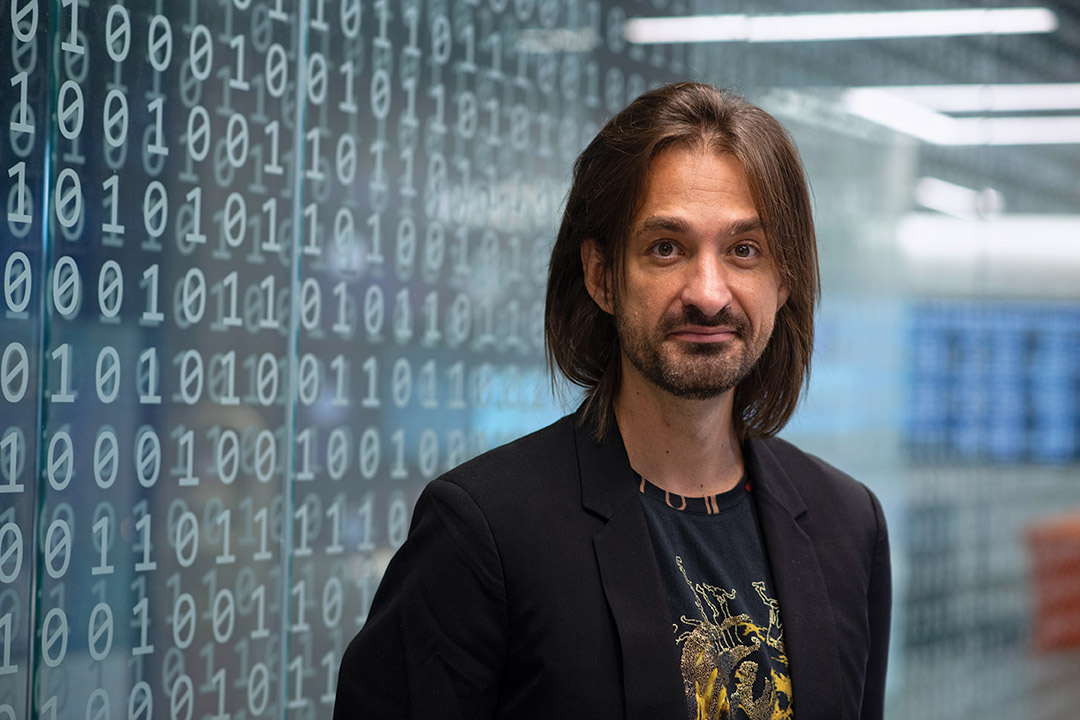Kipman turns science fiction into science fact
A. Sue Weisler
Alex Kipman ’01 leads thousands of people on Microsoft’s mixed-reality team—including many RIT alumni. With the team, Kipman is working to create mixed-reality devices that allow people to have real collaborative experiences.
Alex Kipman claims to be the world’s laziest human being.
“That’s what makes a good engineer,” said Kipman ’01 (software engineering). “The first person that was too lazy to go from point A to point B invented the wheel.”
As a technical fellow at Microsoft, Kipman has used his so-called laziness to invent a few groundbreaking things, including the Kinect motion-sensing input device and the HoloLens products. He was named National Inventor of the Year in 2012.
The Kinect revolutionized personal entertainment in 2010, giving Xbox players and Windows users the ability to turn their gestures and body movements into a controller. With the HoloLens—the world’s first fully self-contained augmented reality headset—people can now see holograms and manipulate them over the real world.
However, to Kipman, each of his inventions is just one small step in creating the future human platform.
Growing up in Brazil, Kipman fell in love with computing while playing his Atari 2600. He dreamed of going to school in the United States and applied to a bunch of universities with “IT” at the end of their names. What hooked him to RIT was a brand new degree program in software engineering—the first in the nation—and its focus on working in teams.
In his early years at Microsoft, Kipman worked tirelessly on Windows Vista—an operating system that was ultimately not well received by consumers. He was mad at himself for forgetting about his passion.
During a visit to his family farm in Brazil, he sought to find his purpose. It was a turning point in his life.
“I thought about the fundamental part of being human, which is to pass on information and tell stories around the fire,” Kipman said. “As a species, we don’t pass on knowledge (like how to build a bridge) through DNA—we do it through stories. But, one problem with telling stories around the fire is that it requires you to be there at that specific time and place.”
Kipman sees technology as a superpower that allows people to displace space and time. For example, people can use their phone to watch a video that was filmed days ago in a different country. He sees a future where absolutely nothing is limited by space and time.
“I like to imagine a situation where you are on Mars, I’ve been dead for 100 years, and we can still experience a typical in-person conversation,” said Kipman. “It’s not a question of if—it’s a question of when this can happen.”
Kipman says that all his work pushes toward this inevitable future. To do these big projects, he emphasizes the importance of having a large, diverse team.
“In the 1980s, you could build an Apple IIe with just two people in a garage—but you can’t do that with Kinect or HoloLens,” Kipman said. “It’s important to learn how to work in teams, because it will allow you to do even more ambitious things.”









